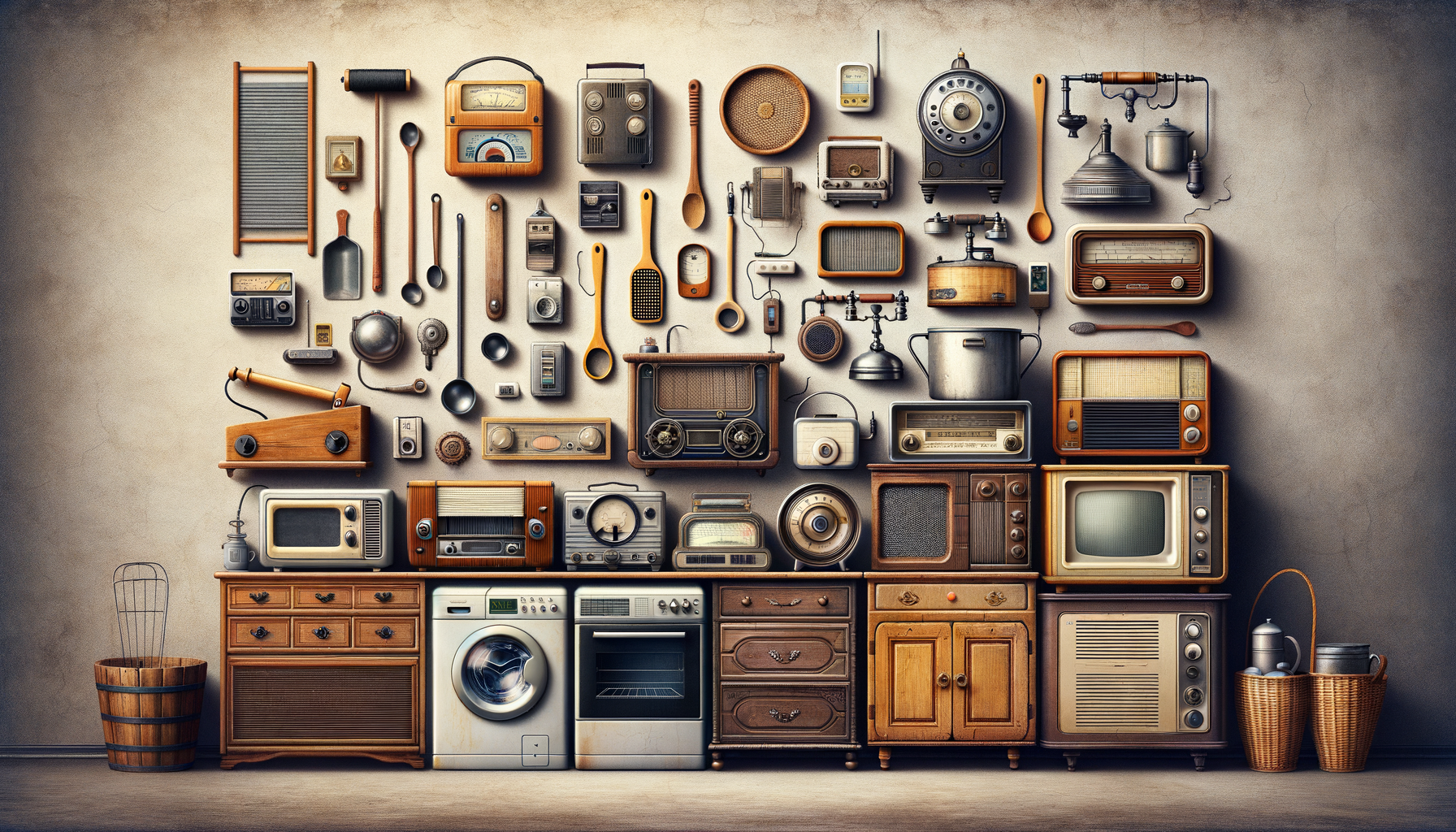The Role of Appliances in Modern Living
In today’s fast-paced world, appliances play a crucial role in enhancing our quality of life. From the kitchen to the laundry room, these devices have revolutionized the way we perform everyday tasks, making them quicker and more efficient. The evolution of appliances has not only saved time but also increased convenience and comfort in our homes.
Historically, the advent of appliances like the refrigerator and washing machine marked a significant shift in household management. These devices allowed for better food preservation and more efficient cleaning processes. Over the years, technological advancements have further enhanced their functionality, integrating features like energy efficiency and smart technology.
Modern appliances have become indispensable in daily life. They are designed to cater to the needs of diverse households, ranging from single individuals to large families. This adaptability ensures that everyone can benefit from the convenience they offer. Moreover, the integration of smart technology has introduced a new era of connectivity and control, allowing users to manage their appliances remotely via smartphones and other devices.
Technological Advancements in Appliances
The appliance industry has witnessed remarkable technological advancements over the past few decades. These innovations have transformed traditional appliances into smart devices, capable of performing multiple functions with enhanced efficiency.
One of the most notable advancements is the integration of smart technology. Appliances now come equipped with Wi-Fi connectivity, enabling users to control them remotely. This feature is particularly beneficial for busy individuals who can manage their appliances on the go. For example, smart refrigerators can monitor food inventory and suggest recipes based on available ingredients.
Additionally, energy efficiency has become a key focus in appliance design. Manufacturers are developing products that consume less energy, reducing both utility bills and environmental impact. Energy-efficient appliances are equipped with advanced sensors that optimize performance and minimize waste.
Moreover, the use of artificial intelligence (AI) in appliances is on the rise. AI-powered devices can learn user preferences and adjust settings accordingly, providing a personalized experience. This technology is particularly prevalent in smart thermostats and robotic vacuum cleaners, which adapt their operations based on user habits and environmental conditions.
The Environmental Impact of Appliances
While appliances offer numerous benefits, their environmental impact cannot be overlooked. The production, use, and disposal of appliances contribute to greenhouse gas emissions and resource depletion. However, the industry is making strides towards sustainability by developing eco-friendly products.
Energy-efficient appliances are a step in the right direction, as they consume less electricity and reduce carbon footprints. Additionally, manufacturers are exploring sustainable materials and production methods to minimize environmental impact. For instance, some companies are using recycled materials in their products and implementing zero-waste manufacturing processes.
Consumers also play a vital role in reducing the environmental impact of appliances. By choosing energy-efficient models and properly maintaining their devices, individuals can extend the lifespan of their appliances and reduce waste. Furthermore, recycling old appliances ensures that valuable materials are recovered and reused, rather than ending up in landfills.
Overall, the shift towards sustainable appliances is a positive trend that benefits both the environment and consumers. As awareness of environmental issues grows, the demand for eco-friendly products is likely to increase, driving further innovation in the industry.
Choosing the Right Appliances for Your Home
Selecting the right appliances for your home can be a daunting task, given the wide variety of options available. However, understanding your needs and priorities can simplify the decision-making process.
When choosing appliances, consider factors such as size, functionality, energy efficiency, and budget. For instance, a large family may require a high-capacity washing machine, while a single individual might prefer a compact model. Similarly, energy-efficient appliances can lead to long-term savings on utility bills, making them a worthwhile investment.
Functionality is another important consideration. Modern appliances offer a range of features, from basic functions to advanced smart capabilities. Assessing your lifestyle and needs can help determine which features are essential. For example, a busy professional might benefit from a smart oven that can be preheated remotely, while a cooking enthusiast may prioritize a stove with precise temperature control.
Finally, budget plays a crucial role in appliance selection. While high-end models offer advanced features, there are plenty of affordable options that provide excellent performance. Comparing different brands and models can help identify the best value for your money.
Future Trends in Appliance Technology
The future of appliance technology is poised to bring even more exciting innovations that will further enhance our daily lives. As technology continues to evolve, appliances are expected to become more intelligent, efficient, and sustainable.
One emerging trend is the integration of the Internet of Things (IoT) in appliances. This technology allows devices to communicate with each other and with users, creating a seamless and interconnected home environment. For example, a smart refrigerator could communicate with a grocery delivery service to restock items automatically.
Another area of development is the use of renewable energy in appliances. Solar-powered devices are gaining popularity, offering an eco-friendly alternative to traditional energy sources. This trend is likely to expand as solar technology becomes more accessible and affordable.
Additionally, the focus on health and wellness is influencing appliance design. Air purifiers, water filters, and other health-oriented devices are incorporating advanced technology to improve indoor air and water quality. These innovations reflect the growing consumer interest in maintaining a healthy living environment.
In conclusion, the appliance industry is on the brink of a technological revolution that promises to transform the way we interact with our homes. As these trends continue to develop, consumers can look forward to a future where appliances are not only functional but also intelligent and environmentally friendly.




Leave a Reply